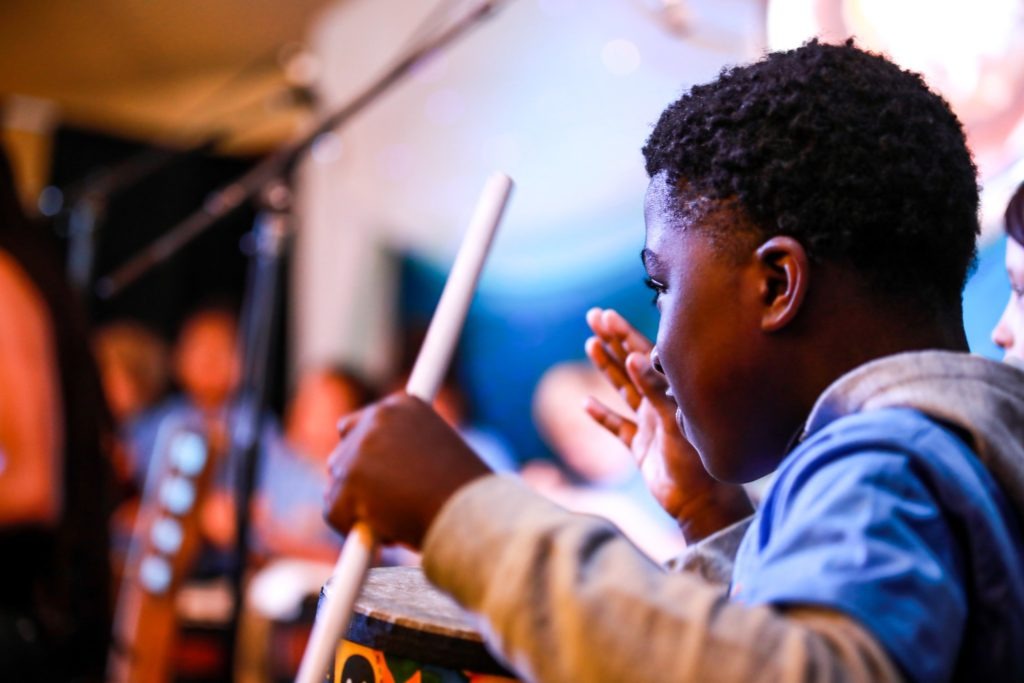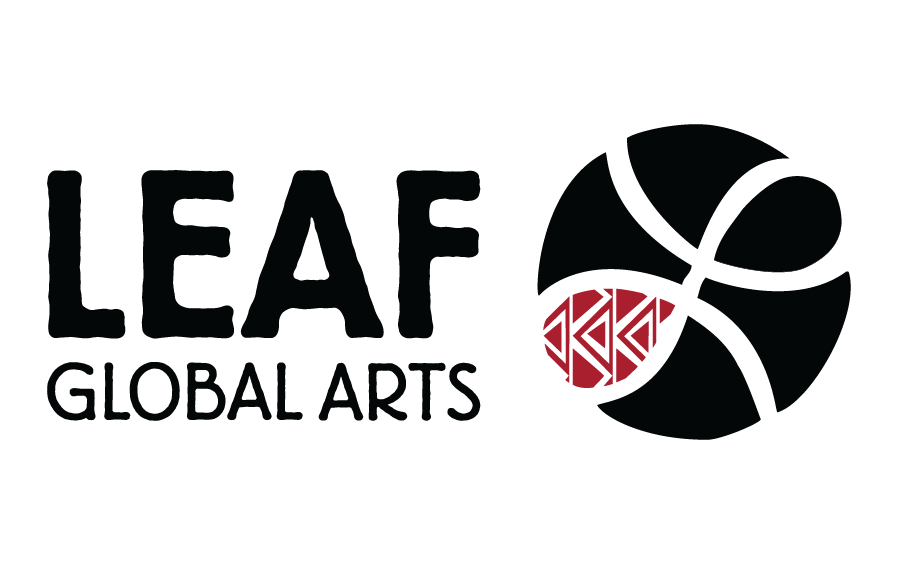With Pan-African programming spanning from Africa to WNC, honoring and reflecting Blackness is business as usual.

LEAF is known for our world music festival, cultural arts education, and preservation work in 11 countries. But this month, we’re focused on Black history and looking at Black History Month through a new lens. After a year of social uprisings and a global pandemic, our 25 year organization is focused less on remembering history and more on building a legacy for the community we serve.
Through collaborations in Africa, Haiti, the Caribbean, and arts education in New Orleans, and across Western North Carolina, LEAF aims to preserve the global Black culture and equip their predominantly Black youth with the 6 assets that arts education and exposure help develop: Community Values Youth, Adult Role Models, Creative Activities, Cultural Competence, Personal Power, & Self-Esteem.
“The youth of the LEAF International program are the leaders of the global citizenship movement – finding creative ways to produce and create despite the challenges at hand. Culture in their community comes first and it’s used to affirm the community, communicate values, enhance cultural sensitivity, and inspire meaningful dialogue. Their greatest display of preservation is seen and felt through their traditional drum and dance styles.” – Schree Chavdarov, LEAF Global Engagement Director
February 14th also marks the 1 year anniversary of the opening of the LEAF Global Arts center – located in downtown Asheville, NC in the historic Del Cardo building.
The immersive 3,300 sq ft. space – which played host to Nina Simone, Al Green, and more, in its past life – was historically a safe space for Blackness and a hub for Black culture in Asheville’s historically White, privileged town. Now, with exhibitions featuring New Orlean’s Black Masking Indian, Shaka Zulu, a room dedicated to Nelson “Madiba” Mandela, a music trail map that traces the origins of Black music throughout the South, and more, LEAF aims to keep that same tradition alive while expanding its reach.
